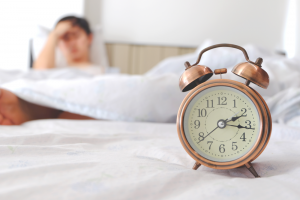

Your habits and surroundings are the usual causes of short-term insomnia problems. Insomnia can be related to a medical or psychiatric illness, can be caused by mental stress or excitement, or can be caused by your daytime and bedtime habits. Insomnia is classified as chronic when it happens almost every night for at least one month. Insomnia of any kind can keep you from feeling rested and refreshed during the day.Īlmost all of us have episodes of insomnia at some time, but insomnia is not a short-term problem for everyone. You may have difficulty falling asleep, may wake up too early, or may wake up periodically during the night. Insomnia is difficulty getting enough sleep or trouble sleeping without interruption. Let's hope that the Australian study stimulates the creation of such home programs.Medically reviewed by. A self-administered version that could be done at home would bring it within reach of anyone with a good alarm clock, a steadfast partner, and the fortitude to sleep no more than three minutes every half hour over the course of an entire day. Do this at home?Īn editorial accompanying the article called the work a "stunning demonstration" that should help drive the development of new non-drug therapies for insomnia.Īs the researchers themselves point out, though, intensive sleep retraining is expensive. The results were published in the journal Sleep. The combination of intensive sleep retraining and stimulus control therapy worked best. Six weeks after beginning the trial, participants who got intensive sleep retraining were falling asleep faster than those who didn't get it. All participants attended five weekly information sessions in which they learned about better sleeping habits (called sleep hygiene). They randomly assigned 79 people with chronic insomnia to four groups: one session of intensive sleep retraining, one session of intensive sleep retraining followed by five weeks of stimulus control therapy, five weeks of stimulus control therapy alone, or no treatment. In a head-to-head trial, Australian researchers tested intensive sleep retraining against other treatments for insomnia. The goal of the therapy is to help people feel what it's like to fall asleep rapidly and learn that they can do it. The sleep deprivation that builds up over the course of this pattern helps even the most hard-core insomniac fall asleep a few times. If successful, the participant is woken up after just three minutes of sleep, asked if he or she had been asleep, and told that he or she had indeed fallen asleep. During each one, the person tries to fall asleep. The next 25 hours are divided into 50 thirty-minute sessions. The next day, he or she reports to a sleep lab around bed time. Intensive sleep retraining works like this: The night before undergoing the program, a person with chronic insomnia sleeps (or stays in bed) no more than five hours. A new approach that uses a 25-hour program called intensive sleep retraining may be enough to break the cycle in a day. One widely used behavioral approach, called stimulus control therapy, aims to break harmful sleep habits and thoughts over the course of several weeks. Some of the sleepless turn to medications. Loosening the grip of chronic insomnia can take time and effort. Soon just the sight of your bed or the tick of the clock toward 10:00 pm can trigger anxiety and render you wide awake. But then the habits that come along with not sleeping-looking at the clock, lying in bed wide awake, worrying about not getting to sleep-can stick. Stress or trouble at home or work interferes with sleep for a few nights. For others, insomnia is a chronic problem that affects mood, daytime alertness and performance, and emotional and physical health.Ĭhronic insomnia often starts out innocently enough.

For some, it's just a now-and-then hitch. No content on this site, regardless of date, should ever be used as a substitute for direct medical advice from your doctor or other qualified clinician.Įach night, as millions of Americans slumber peacefully, millions more can't fall asleep or stay asleep. Please note the date each article was posted or last reviewed. ARCHIVED CONTENT: As a service to our readers, Harvard Health Publishing provides access to our library of archived content.


 0 kommentar(er)
0 kommentar(er)
